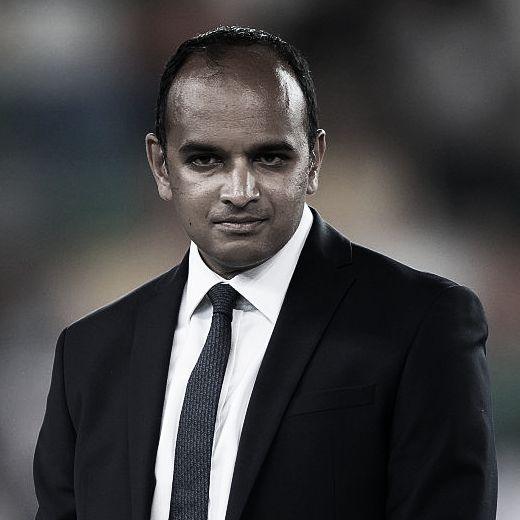Vinai Venkatesham, former Arsenal CEO, takes over as Tottenham’s chief executive after Daniel Levy’s departure. His Arsenal legacy includes appointing Mikel Arteta, supporting the women’s team, and navigating the pandemic with empathy. Known for his inclusive leadership, Venkatesham is expected to rely on Thomas Frank and Johan Lange for football decisions. He aims to build on Tottenham’s commercial success, modernize the club’s image, and foster positive relationships with the Lewis family, the club’s owners. The move marks a new era for Spurs, with questions lingering about whether his amiable approach will be a strength or weakness.
Daniel Levy's departure as Tottenham's executive chairman has sent shockwaves through the football world. For years, Levy's name has been synonymous with shrewd negotiation and a steely grip on the club's operations. The question on everyone's lips: who could possibly fill that void? The answer, it seems, lies in a familiar face – Vinai Venkatesham.
"It's the Vinai show now," a well-placed source revealed, signaling a new era for Spurs. Venkatesham, formerly the CEO of Arsenal, crossed the North London divide in April, stepping into the chief executive role at Tottenham. After 14 years with the Gunners, his appointment raises intriguing questions about the future direction of the club.
What can Tottenham's staff and fans expect from their new chief executive? Venkatesham's legacy at Arsenal offers some clues. His six-year tenure was marked by three key achievements. First and foremost, he played a pivotal role in the appointment of Mikel Arteta as manager. Venkatesham, alongside Huss Fahmy, personally traveled to Arteta's Manchester residence in the early hours of December 16, 2019, to finalize the deal.
While Edu, the technical director at the time, spearheaded the pursuit of Arteta, it was Venkatesham who ultimately signed off on the appointment. Arteta's subsequent transformation of Arsenal's fortunes speaks volumes about Venkatesham's judgment.
 Image source, Getty Images
Image source, Getty ImagesSecondly, Venkatesham championed the growth of Arsenal's women's team, providing them with a platform to flourish. This commitment to inclusivity is a hallmark of his leadership style.
Finally, Venkatesham guided Arsenal through the turbulent waters of the coronavirus pandemic. His empathetic and kind-natured approach provided much-needed comfort to employees throughout the club.
"An all-round top guy. No ego at all," a former colleague remarked. "As a person, you couldn't say a bad word about him. Really nice guy."
However, don't mistake kindness for weakness. Venkatesham was also instrumental in the decision to sack Unai Emery, demonstrating his willingness to make tough calls.
Now, Venkatesham faces a new challenge: transforming Tottenham. Will he soften the club's image? It seems unlikely that he will rule with an iron fist. He favors a culture of inclusivity, leading by example rather than through vocal directives.
"He's a leader - but an understated one," a former colleague noted. When it comes to football-related decisions, he's likely to rely on the expertise of head coach Thomas Frank and technical director Johan Lange, similar to how he empowered Edu and Arteta at Arsenal.
Venkatesham's ability to quickly analyze and understand information makes him an efficient administrator and a valuable asset in internal discussions. His amiable personality allows him to navigate complex relationships with ease.
How will Venkatesham approach deal negotiations? At Arsenal, he was involved in the approval process and played a role in discussions around offers and contracts. He strategically chooses which deals to actively participate in, often leveraging pre-existing relationships.
Levy, despite his unpopularity with some fans, was instrumental in building Tottenham into a commercial powerhouse. The club is now worth $3.3 billion, boasting world-class facilities. Venkatesham's track record at Arsenal, where he oversaw a rise in revenue from £340m to £615m, suggests he can build on this foundation.
At Arsenal, Venkatesham sought to brand the club as "cool" to attract younger fans, modernizing a club steeped in tradition. The emergence of players like Bukayo Saka and Declan Rice has further enhanced the club's commercial appeal.
Venkatesham's move across North London came as a surprise to many. After leaving Arsenal, he was content to bide his time, exploring opportunities outside of football. But the Lewis family, who own Tottenham, were intent on restructuring the club's leadership following an external audit.
The appointment of Peter Charrington as non-executive director in March paved the way for Levy's departure, and Venkatesham's arrival signaled a clear shift in direction. His relationship with Vivienne and Charles Lewis, who will play a key role in the ownership's connection with Tottenham, will be crucial to the club's future.
Ultimately, the question remains: will Venkatesham's "nice guy" persona be a strength or a weakness in the cut-throat world of football? Only time will tell as he embarks on his North London takeover.